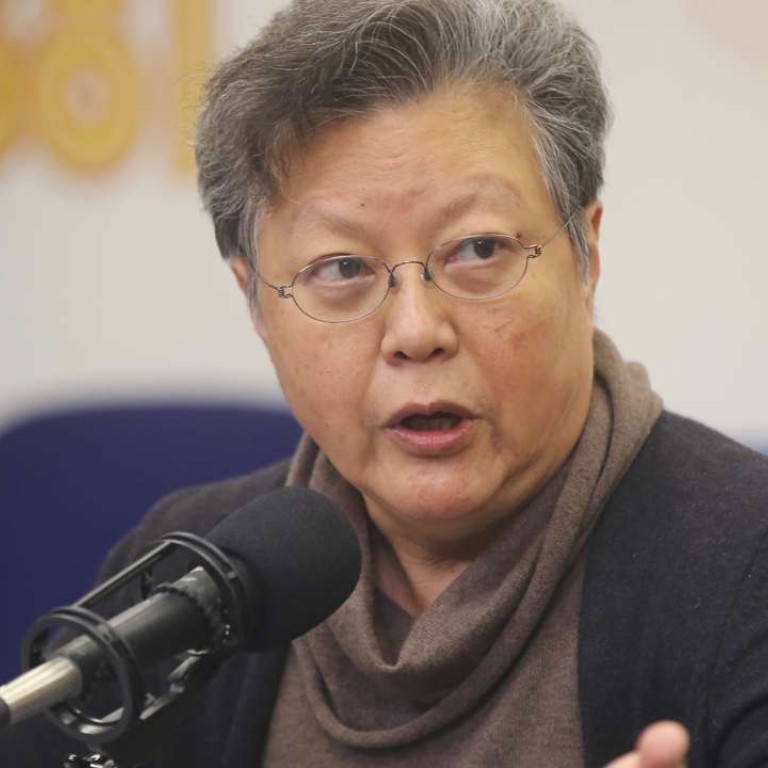
Language gap: lack of Cantonese may be holding back Hong Kong-based Beijing officials in understanding local sentiment
National People’s Congress delegate Rita Fan also says Hong Kong government should examine why some young people support city’s independence
Pro-Beijing political heavyweight Rita Fan Hsu Lai-tai has said the recent tense relations between the mainland and Hong Kong are partly due to Hong Kong-based mainland envoys’ lack of proficiency in Cantonese, which prevents them from having a comprehensive understanding of the social sentiment here.
Fan also urged the government to look into why some young people support Hong Kong independence and not just criticise them.
Fan, the city’s sole deputy on the Standing Committee of the National People’s Congress, made the comment in a live online interview with Legislative Council president Jasper Tsang Yok-sing on Wednesday.
The interview was part of a series under the “Hong Kong Vision Project” run by the Hong Kong Policy Research Institute, of which Tsang is a vice-chairman.
On the extent of the impact of independence calls on the implementation of Beijing’s “one country two systems” policy, Fan said: “It depends on how much the leaders of the central government understand Hong Kong.
“You have to live in Hong Kong to know about Hong Kong, not only staying at home alone, but going out to feel the social sentiment,” said Fan, who added many mainland envoys here, like those from Beijing’s liaison office, only spoke Putonghua.
“You need to feel how [Hong Kong] people feel. You need to feel and understand what makes them happy and what makes them unhappy. But first of all, you need to speak Cantonese, otherwise it will be very difficult.”
She also said she appreciated many young people felt frustrated because they did not think Hong Kong had good prospects, partly as a result of globalisation. “You are not competing with your neighbours now. You compete with others elsewhere in the world.”
But she warned that making Hong Kong break away from China was not a way out.
“If they succeed [in achieving Hong Kong independence], it will sentence Hong Kong to death. And of course they will also not be able to survive. But unfortunately, millions of other innocent people will also become victims.
“But we need to understand the young people and why they have such ideas. If you just criticise them and say no to this and that, they won’t listen.
“You need to express your views in such a way that they feel comfortable to listen. No one will listen to you if you use the wrong way,” said Fan, who served as Legislative Council president from the 1997 handover until 2008, when she was succeeded by Tsang.
She said she hoped the chief executive could be a good middleman in conveying the views of both the Beijing leaders and Hong Kong people to each other.

